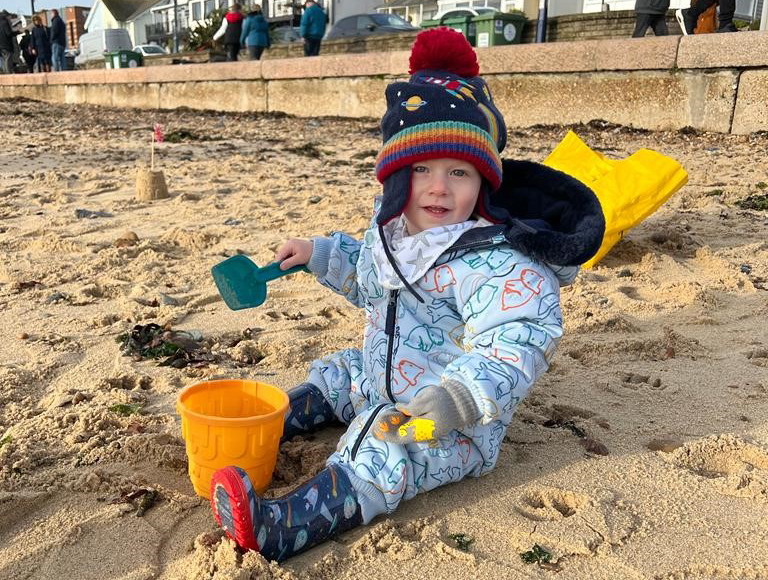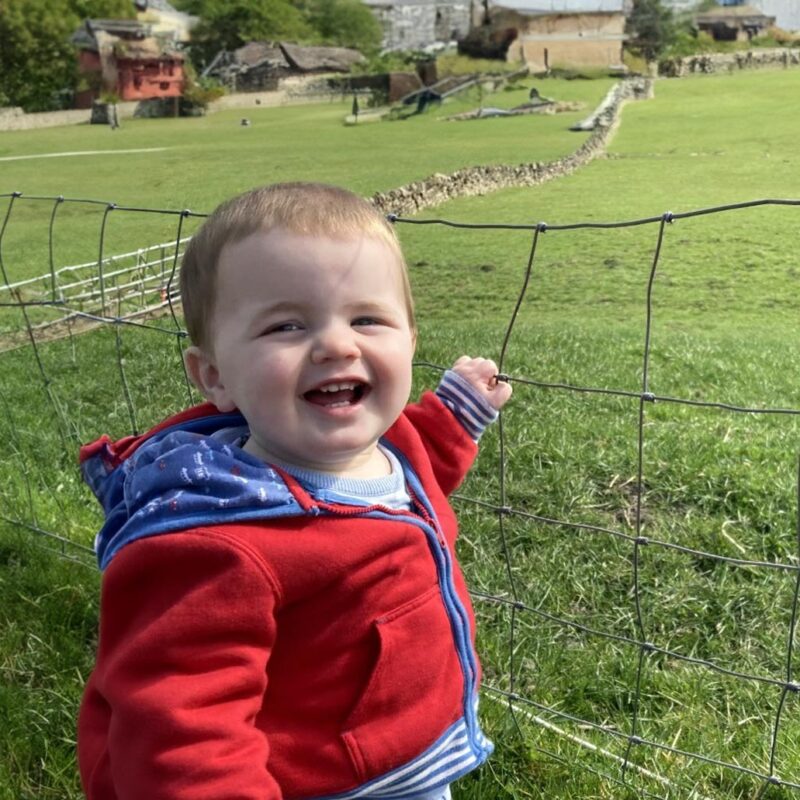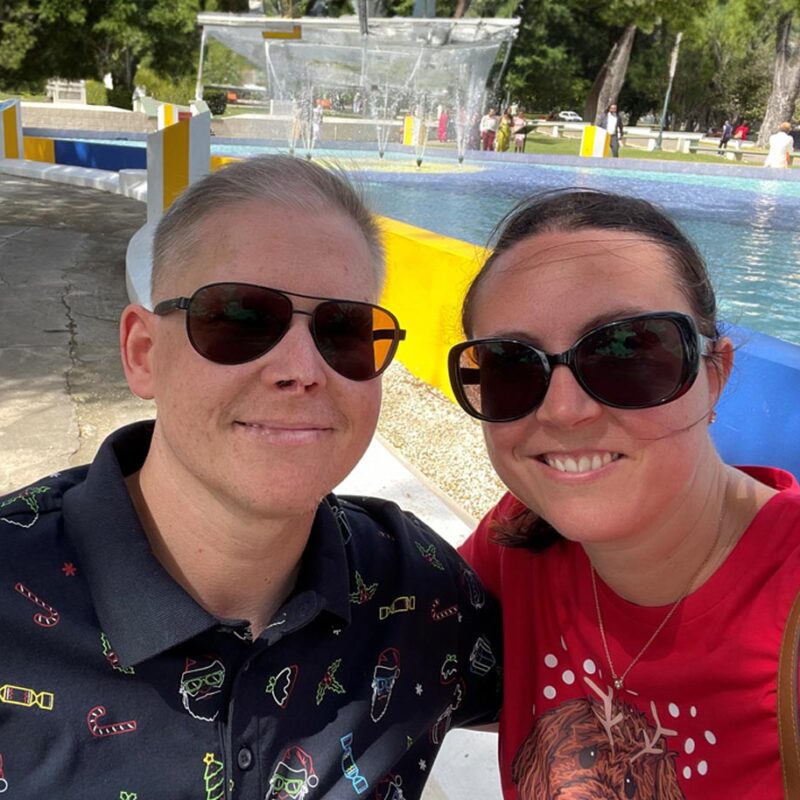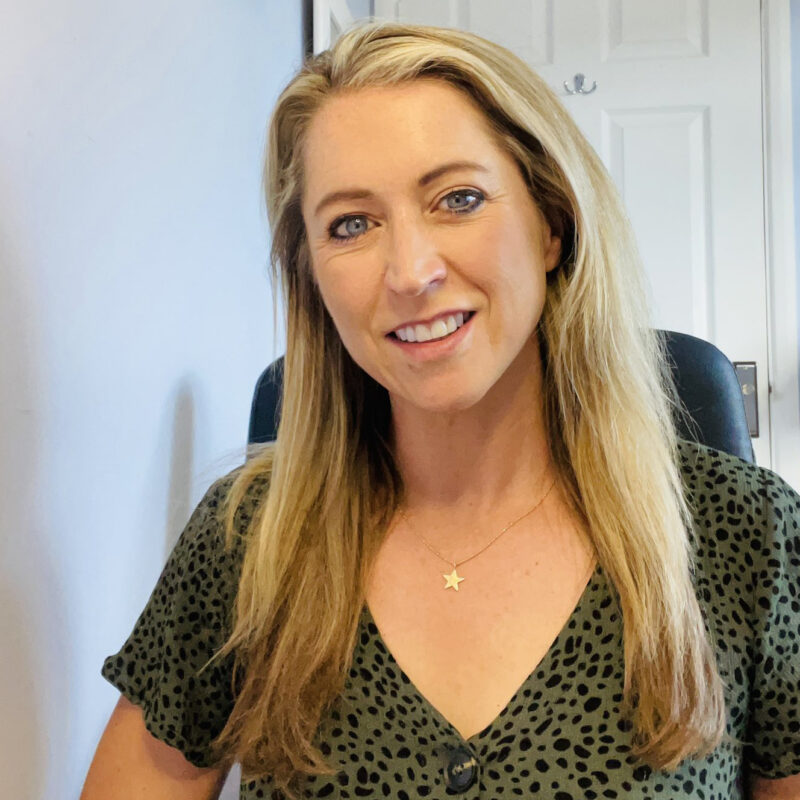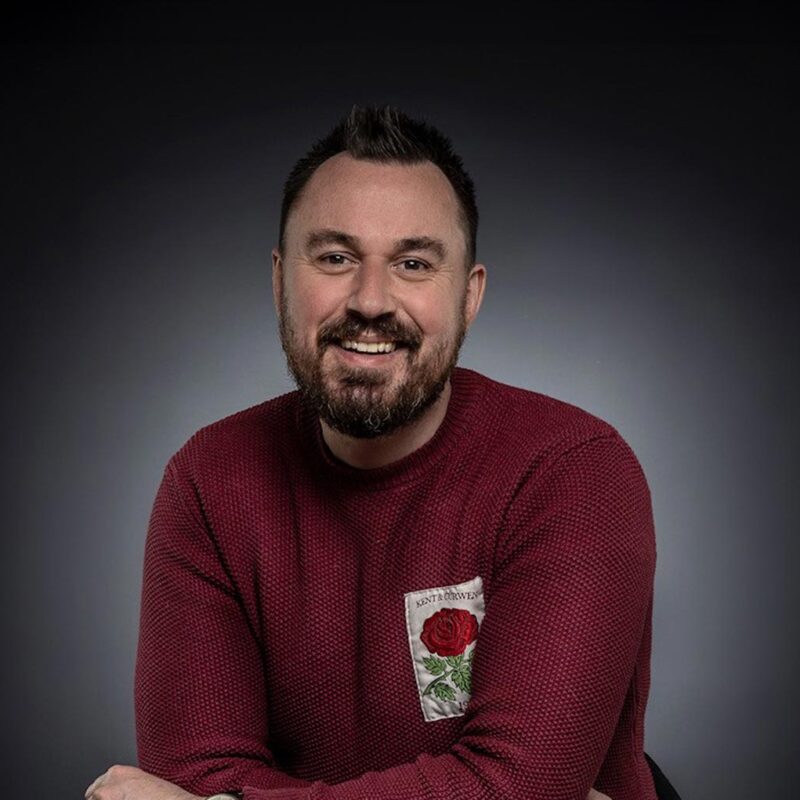Mum of two Hannah Charman’s life took a drastic turn six weeks into a blissful new routine with her new-born son.
While Ash has since made a full recovery from sepsis, Hannah wants to share how important it is for parents to trust their gut instincts and seek urgent medical attention for their child. It might just save their life…
Hannah was enjoying life with her second child, Ash, in September 2021 when at six weeks he started to get sick. He was vomiting and clearly in distress. Hannah took him to the GP who said it was a bad case of reflux, and prescribed Gaviscon. Two days later, Ash had turned yellow and the family’s health visitor said it was just new-born jaundice.
Ash had started to deteriorate – he was cold to the touch, staring at one spot, and had fewer wet nappies than usual. Hannah, with the support of her partner and parents, decided to take to him to A&E. She said:
“It was just something in my gut that told us something’s wrong here – we need to get help, so that’s why we took him to A&E.”
Hannah already had one child already, an older daughter, so felt a little more confident advocating for Ash than she might have done if it was her first child. She urges all healthcare visitors, GPs and other health professionals to take parental concerns seriously – even of it seems likely to just be new parent panic.
Upon arrival to the hospital, the paediatrician took one look at Ash and said they would be staying. Ash had sepsis caused by an unknown infection, possibly a UTI; his liver and kidneys were shutting down. Hannah said: “We got blue lighted after the first 24 hours to a specialist unit in in a different hospital and that’s when we realised actually this is this is very, very serious.”
What followed was a two week stay in ICU and a year’s worth of tests to see if Ash had a condition which made him susceptible to infection. It was a difficult time, as Covid restrictions meant Hannah was often alone in hospital and there was even a point where she was concerned that she had made her son sick by breastfeeding him. She said: “It was just awful. It was very, very lonely.”
“All the noises felt like a war zone, it was just very traumatic and you have to do it all by yourself and be strong for your child.”
Eventually, after a blood transfusion and treatment, Ash started to seem more like himself. Hannah said: “In the morning it just seemed like he smiled for the first time which was amazing. But to get milk back after over a week without breastfeeding, it was really hard. We had to supplement the full amount until I could full-time breastfeed again. But it took a lot of work at that point.”
Hannah was eventually diagnosed with PTSD, and has accessed counselling support to help her process this difficult chapter in her family’s life. Thankfully, though, Ash has since been given the all clear as a healthy little boy and has made a full recovery. Now one-and-a-half, Ash is at nursery. Hannah said: “You wouldn’t even know how ill he was when he was a new-born. He’s just very, very happy. He’s into climbing and cars and all sorts of things.”
Hannah encountered the UKST by doing research in the wake of Ash’s illness, and found that she was not alone in her experience. She feels that more could be done to equip new mothers and fathers with the knowledge they need to recognise signs of sepsis and act quickly. She said: “You have regular midwife appointments and antenatal classes but it’s never mentioned, even as a precaution. You don’t want to panic anyone, but the information should be there as a consideration if something does go wrong.”
Hannah has struggled with feeling guilty that she could have noticed Ash was poorly sooner – but her husband had been making a 1-second a day video of his life which helped change her perspective. She said: “My therapist took that video and asked her colleagues at what point do you see this baby boy becoming ill? And it came back that no one saw how sick he was until they saw the NG tubes and he was actually in hospital. That helped assuage some of the guilt.”
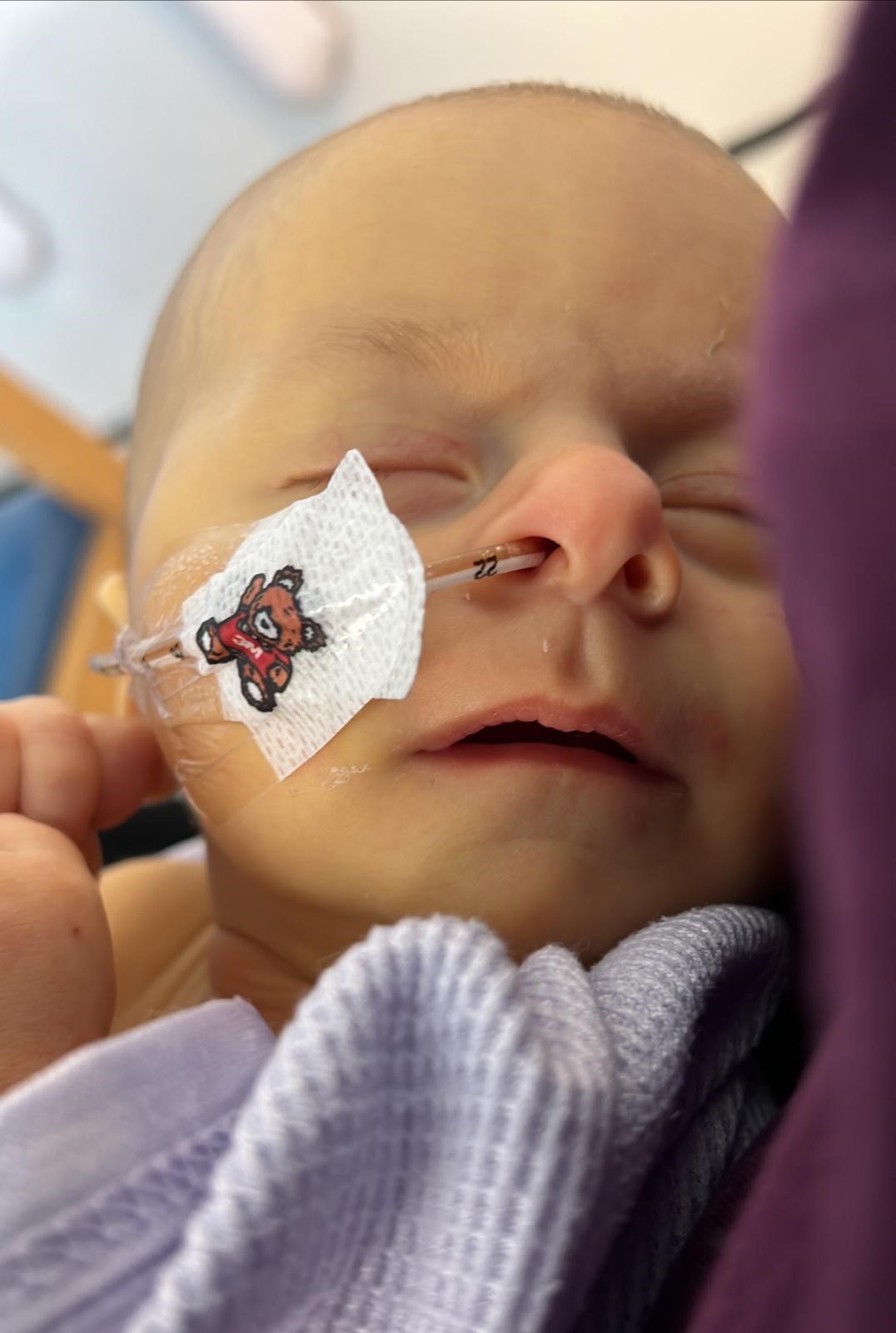
Hannah said: “Looking back at what happened, I wonder whether we could have changed anything. Could I have done anything different, noticed anything sooner? In our case, sepsis is something even a medical professional missed. And because of this, I want to do something positive. What I can do now is raise awareness by sharing my story.”
To other parents who may one day end up in a similar position, Hannah said:
“Trust your instincts. If you are worried, speak to someone, and if you are still worried after that appointment, speak to someone else.”
Since Ash’s recovery, Hannah has worked to share her story with her colleagues at AVIVA, as well as at her son’s nursery and children’s groups. We’re very grateful for all of Hannah’s work to help make other parents aware of sepsis so that they don’t have to go through what her family did.
